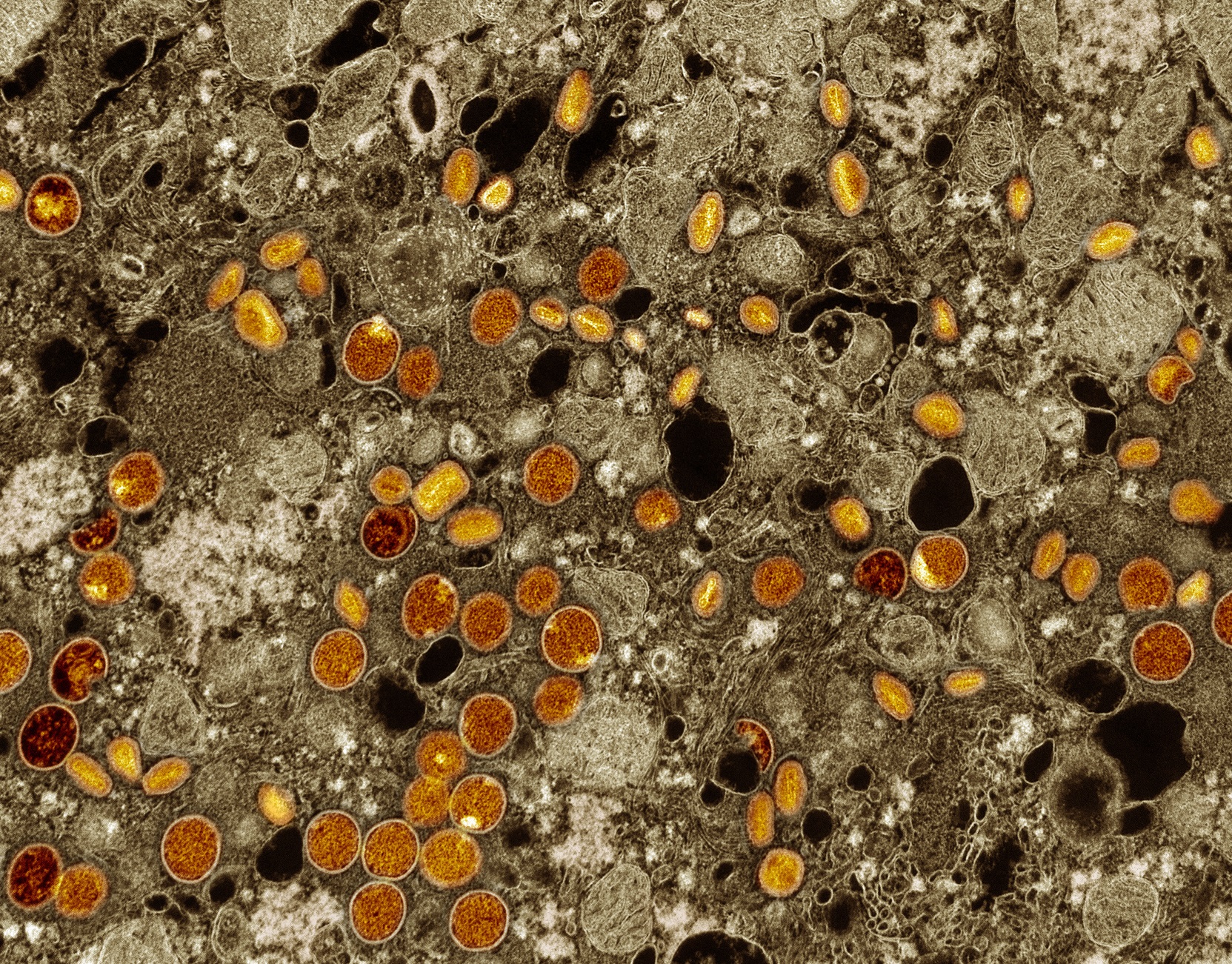There is currently no treatment approved for mpox in the United States. However, there are several antiviral medications approved for smallpox that may help people with mpox, and evidence is building on the role of supportive management to alleviate the symptoms and complications of mpox. NIAID played a major role in the development of two smallpox antivirals called tecovirimat and brincidofovir. For more information on the regulatory status of mpox treatment in the United States, please consult the Food and Drug Administration.
In August 2024, NIAID announced that tecovirimat did not reduce the duration of mpox lesions among children and adults with clade I mpox in the Democratic Republic of the Congo (DRC), based on an initial analysis of data from PALM007, a randomized, placebo-controlled trial. However, the study’s 1.7% overall mortality among enrollees, regardless of whether they received the drug or not, was much lower than the mpox mortality of 3.6% or higher reported among all cases in the DRC. This shows that better outcomes among people with mpox can be achieved when they are hospitalized and provided high-quality supportive care. Further analyses and detailed results from PALM007 will be released through scientific channels.
Ongoing Clinical Trials
STOMP Trial in the United States and Other Countries Affected by Clade II
In September 2022, NIAID started a clinical trial of tecovirimat in the United States and other countries affected by clade II mpox. The trial will ultimately include more than 500 adults and children with mpox. Remote enrollment is available, meaning people may participate in this trial from anywhere within the United States. Those interested in enrolling can visit stomptpoxx.org for more information.
Adults with severe mpox or those at high risk for severe disease including individuals with underlying immune deficiency, a history of or active inflammatory skin conditions, pregnant women and children will be enrolled in an open-label arm in which all participants receive tecovirimat. Other adult participants—530 total—will be randomly assigned in a 2:1 ratio to receive tecovirimat or placebo. Investigators will gather data to determine if participants receiving tecovirimat heal more quickly compared with those taking placebo.
Previous NIAID Research on Antivirals for Poxviruses
Tecovirimat (TPOXX)
NIAID funded preclinical studies of tecovirimat to determine its mechanism of action, safety, and efficacy. Subsequently, NIAID and the Biomedical Advanced Research and Development Authority (BARDA), part of the U.S. Department of Health and Human Services, funded Phase 1 and Phase 2 clinical trials to test the safety and pharmacokinetics—how a drug moves through the body—of oral tecovirimat. The Food and Drug Administration approved tecovirimat in 2018 for the treatment of smallpox in adults and children; the drug has been added to the U.S. Strategic National Stockpile for use in the event of an outbreak. It is available in both an oral and intravenous formulation.
Brincidofovir (Tembexa)
NIAID also supported the early development of brincidofovir (Tembexa) as a treatment for smallpox. Similar to its support of tecovirimat, NIAID supported the discovery, preclinical development, and early clinical testing of the drug; BARDA funded its advanced clinical evaluation. The FDA approved brincidofovir for oral administration in 2021 for the treatment of smallpox in adults and children based on efficacy in animal models of Orthopoxvirus infection.
In addition to its work on these two medications, NIAID continues to screen novel compounds to find potential antiviral candidates to treat mpox and related conditions cause by Orthopoxviruses.
Scientific Advances
The Antiviral Tecovirimat is Safe but Did Not Improve Clade I Mpox Resolution in Democratic Republic of the Congo
August 15, 2024The antiviral drug tecovirimat did not reduce the duration of mpox lesions among children and adults with clade I mpox in the Democratic Republic of the Congo (DRC), based on an initial analysis of data from a randomized, placebo-controlled trial.



